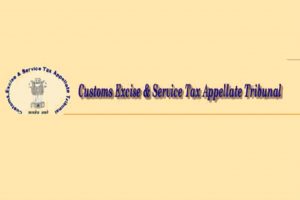Customs, Excise and Services Tax Appellate Tribunal (CESTAT): Rachna Gupta (Judicial Member) allowed an appeal which was filed against the order of Commissioner (Appeals) in which he had wrongly invoked the principle of unjust enrichment while rejecting the refund of the appellant.
The appellant in the present case had imported 3000 MT of Aluminium Nitrate from Indonesia. At the time of filing home consumption clearance, appellant had claimed preferential rate of Basic Customs Duty (BCD) @ 5% under Notification No.46/2011 Entry No. 358(1) against BCD @ 7.5%. However, at that time, he could not produce original certificate of origin with authentic signatures. Accordingly, provisional assessment was resorted for. The bills were, therefore, assessed provisionally in terms of section 18(1) of the Customs Act, 1962, however, by extending the aforesaid notification benefit. The appellant later submitted the original certificate of origin along with original revenue deposit challans with the request for finalization of the provisional assessment. The appellant also requested for refund of aforesaid revenue deposit of Rs.15,09,146/-. The original authority after examining the applicability of principles of unjust enrichment and considering the certificate issued by the appellant’s Chartered Accountant, sanctioned the aforesaid refund. However, review order passed under section 129D(2) of the Customs Act, 1962 that the Deputy Commissioner of Customs, Visakhapatnam was required to file an appeal against the said Order-in-Original. The said appeal of the department had been adjudicated thereby setting aside the Order-in-Original. Being aggrieved, the importer had filed the present appeal before this Tribunal.
The appellant had submitted that the BCD as was applicable to the import of Aluminium Nitrate made by the appellant was @ 5% in terms of Notification No.46/2011 Entry No. 358(1). However, a provisional assessment was resorted to for want of certain documents and customs duty @ 7.5% was paid by the importer. At the time of final assessment, the benefit of notification was extended. Accordingly, the appellant became entitled for the refund of the duty paid to the extent of excess 2.5% thereof.
The Tribunal assessed the two findings given by the Commissioner (Appeals) while rejecting the refunds:
- i) that the appellant/assessee has not proved constructively with the supporting documents that the duty paid is not charged to the buyer and whether there was any change in the price of the goods produced by them to that effect.
(ii) CA certificate is not sufficient to show that burden has not been passed on to other persons.
The Tribunal was of the view that the said document was opined to be a sufficient document to ascertain whether the incidence of duty has or has not been passed on to the customers as the cost of the product because the books of account are the only way for examining the same. If an amount is shown in books of accounts as cost of material the amount has to be debited from the cash account and has to be credited towards expenses of materials account in the profit and loss statement. On the other hand, if the burden of duty has been borne by the manufacturer itself, the amount shall be debited in the cash account and a credit as receivables shall be shown in the books of accounts. The tribunal drew support from various decisions of Uniword Telecom Ltd. v. CCE, 2017 (358) ELT 666 (Tri-All.), Savita Oil Technologies Ltd. v. CCE, 2017 (358) ELT 331 (Tri-Mumbai).
The Tribunal distinguished the decisions of Hindustan Petroleum Corprn. Ltd. v. Commissioner of Customs, 2015 (328) ELT 410 and UOI v. Solar Pesticides (P) Ltd., 2000 (116) ELT 401 (SC) stating that they were wrongly applied to the facts of the present case which simply talks about the documents to be mandatorily provided in terms of section 27(1A) of the Customs Act to prove that there has been no unjust enrichment.
The Tribunal allowed the appeal and finally held that the findings of Commissioner (Appeals) while rejecting the refund of Rs.15,09,146/- which admittedly was an excess amount paid by the appellant, over and above his liability of paying BCD @ 5% in terms of Notification No. 46/2011 Entry No. 358(1), was not sustainable.[Indian Explosives (P) Ltd. v. Commr. Of Customs & ST, Customs Appeal No. 30258 of 2019, decided on 03-09-2021]
Suchita Shukla, Editorial Assistant has reported this brief.

